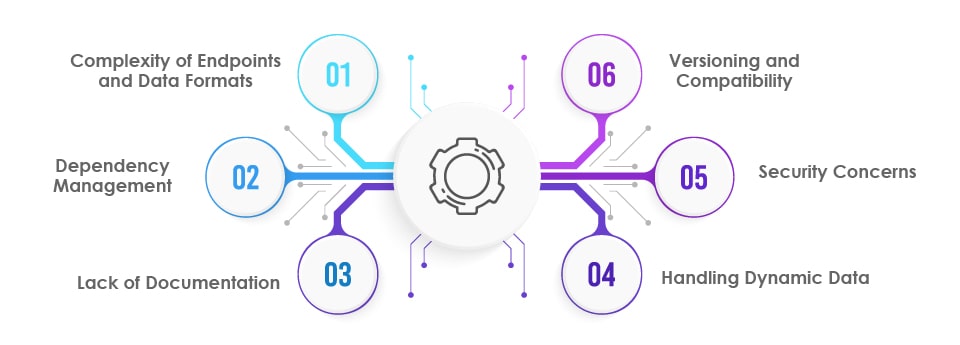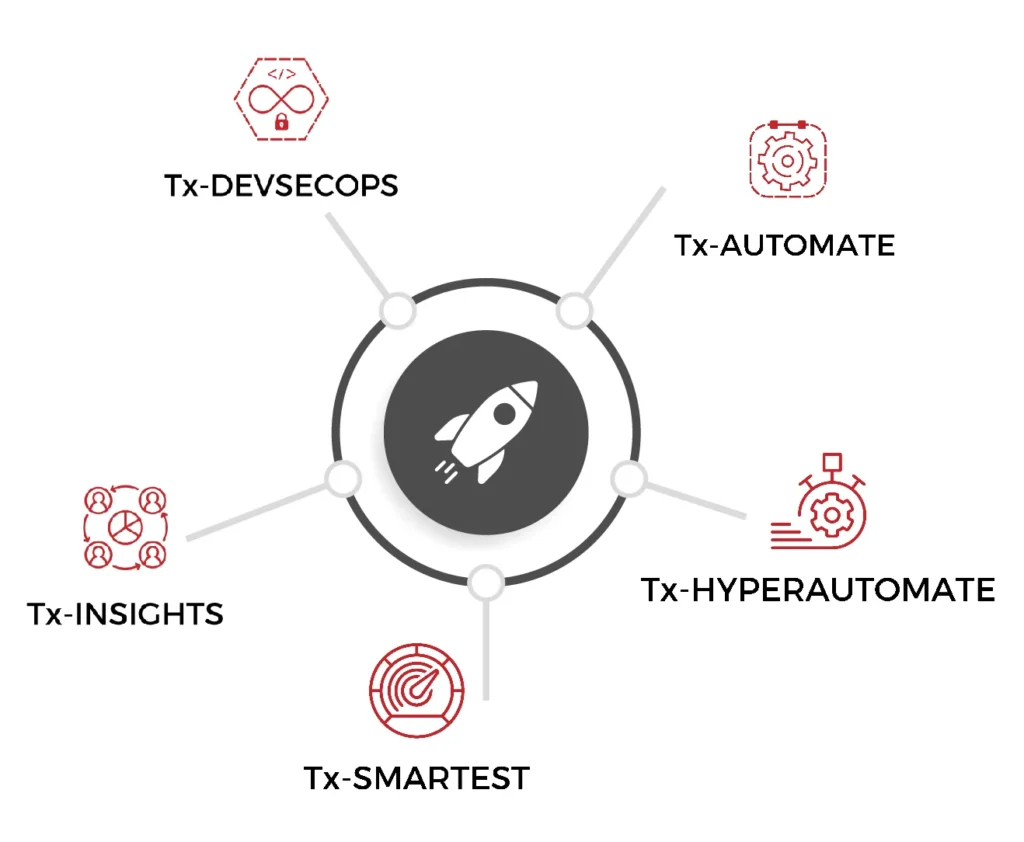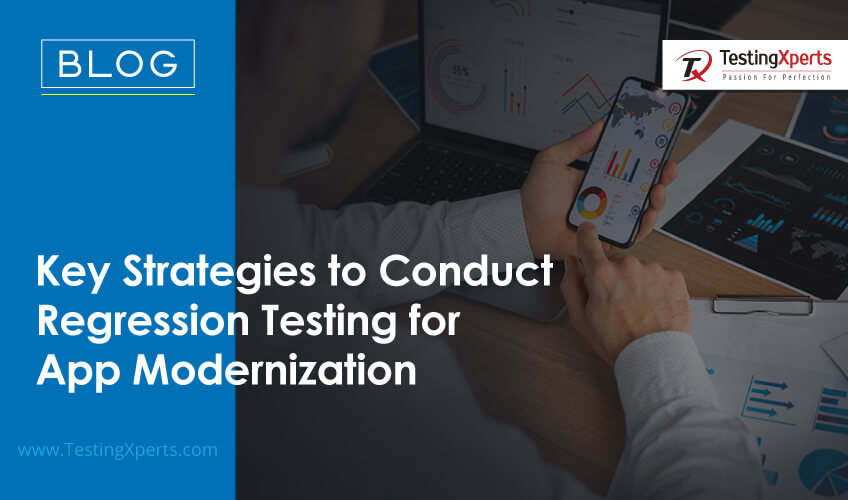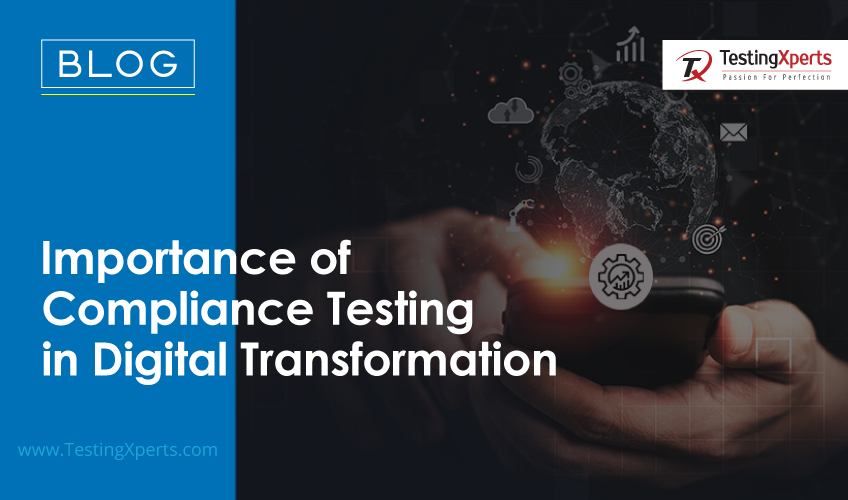Retail businesses increasingly rely on APIs to manage their online platforms in the digital age, making API security testing essential. APIs serve as the backbone for online transactions, customer data exchange, and integration of various services. However, they also...
 API Security Testing Leading the Retail Sector
The Risks of Inadequate API Security
Challenges in API Testing
Solutions for API Testing in Retail
Conclusion
How can TestingXperts help you with API Security Testing?
API Security Testing Leading the Retail Sector
The Risks of Inadequate API Security
Challenges in API Testing
Solutions for API Testing in Retail
Conclusion
How can TestingXperts help you with API Security Testing?
“Security is a process, not a product” – Bruce Schneier
Nowhere is this truer than in the world of API security for the retail sector—a critical frontier where the fusion of technology and commerce demands a vigilant shield against cyber threats.
In the modern retail world, where data flows seamlessly between applications, devices, and platforms, the strength of a business lies in the strengthening of its digital boundaries.
API Security Testing Leading the Retail Sector

Application Programming Interfaces (APIs) emerge as silent architects reshaping the entire value chain. APIs play a pivotal role in facilitating seamless communication and integration across diverse platforms, from e-commerce websites and mobile apps to inventory management systems and customer relationship databases. By acting as the conduits through which different software components interact, APIs empower retailers across multiple business operations. For instance, in the online shopping experience, APIs allow for real-time connectivity between the front-end interface and back-end databases, ensuring accurate product availability, pricing, and order processing. This not only enhances the overall customer experience but also streamlines the internal processes that dictate inventory management and order fulfillment.
Furthermore, APIs enable retailers to forge strategic partnerships and collaborations with third-party services. Payment gateways, shipping providers, and marketing analytics tools seamlessly integrate into the retail ecosystem through APIs, fostering agility and adaptability. The role of APIs extends beyond mere operational efficiency; they serve as the linchpin in a dynamic network where retail entities can swiftly adapt to market trends, leverage new technologies, and respond to consumer demands in real time. As the retail value chain becomes increasingly interconnected, APIs emerge as the enablers of innovation, unlocking new possibilities and driving the industry toward a more responsive and customer-centric future.
The Risks of Inadequate API Security

As APIs become increasingly integral to the functioning of interconnected systems, addressing the below-mentioned risks through robust security protocols is crucial for maintaining the overall security posture of an organization.
1. Unauthorized Access:
Inadequate API security opens the door to unauthorized access, allowing malicious actors to exploit vulnerabilities and gain unauthorized entry into systems. This poses a significant risk to sensitive data, including customer information, financial records, and proprietary business data. Breaches of this nature not only erode trust but can also result in legal consequences and financial losses.
2. Data Integrity Compromises:
Lax API security measures may expose organizations to the risk of data manipulation or corruption. Without proper validation and encryption mechanisms, attackers can tamper with the data flowing through APIs, leading to inaccurate information. Such compromises in data integrity can impact decision-making processes and undermine the reliability of the business’s operations.
3. Injection Attacks:
Inadequate API security heightens the risk of injection attacks, where malicious code is inserted into API requests. This type of attack can potentially lead to the compromise of entire databases or systems, posing a serious threat to the confidentiality and integrity of sensitive information.
4. Service Disruptions and Downtime:
Security vulnerabilities in APIs may expose organizations to denial-of-service (DoS) or distributed denial-of-service (DDoS) attacks. These attacks can overwhelm systems with a barrage of malicious requests, leading to service disruptions and rendering services inaccessible to legitimate users. Such downtime not only hinders business operations but can also result in financial losses and reputational damage.
Challenges in API Testing

API testing, a critical facet of software testing, comes with its unique set of challenges in the dynamic landscape of modern software development. While APIs (Application Programming Interfaces) serve as the digital bridges that enable seamless communication between different software components, testing their functionality, reliability, and security is essential to ensure a smooth and error-free experience for end-users. Here are some key challenges in API testing:
1. Complexity of Endpoints and Data Formats:
APIs often have numerous endpoints and support diverse data formats. Testing the various combinations of endpoints and ensuring compatibility with different data types can be complex. Additionally, handling responses in various formats like JSON or XML adds an extra layer of intricacy, requiring comprehensive testing strategies to validate data accuracy.
2. Dependency Management:
Many software applications rely on third-party APIs, introducing dependencies that are beyond the control of the development and testing teams. Changes in third-party APIs or their unavailability for testing purposes can hinder the testing process. Effective strategies for handling dependencies and ensuring consistent testing environments are crucial to overcoming this challenge.
3. Lack of Documentation:
Incomplete or outdated API documentation poses a significant challenge for testers. Without clear and comprehensive documentation, understanding the functionality and expected behavior of APIs becomes difficult. Testers may face hurdles in designing test cases, leading to potential gaps in test coverage and effectiveness.
4. Handling Dynamic Data:
APIs often deal with dynamic data that changes over time, such as timestamps or unique identifiers. Testing with static datasets may not reflect real-world scenarios. Testers must develop strategies to handle dynamic data effectively, ensuring that tests remain relevant and accurate across different stages of the software development life cycle.
5. Security Concerns:
API security is paramount, and testing for vulnerabilities such as unauthorized access, data breaches, or injection attacks is critical. However, replicating real-world security scenarios and ensuring that APIs are resilient to various security threats can be challenging, requiring a robust and comprehensive security testing approach.
6. Versioning and Compatibility:
As software evolves, APIs undergo changes in terms of version updates and feature enhancements. Ensuring backward compatibility while testing the latest versions and understanding the impact of changes on existing integrations are ongoing challenges. Effective version control and testing strategies are essential to mitigate risks associated with versioning.
Solutions for API Testing in Retail

In the fast-paced world of retail, where digital interactions drive customer experiences, robust API testing is indispensable to ensure the reliability and performance of software applications. Here are key solutions to address the specific challenges encountered in API testing within the retail sector:
1. Comprehensive Test Data Management:
Establishing a robust test data management strategy is crucial for handling the dynamic and diverse datasets associated with retail APIs. Implementing realistic and representative data sets that mimic actual usage scenarios allows testers to validate the functionality, performance, and security of APIs under conditions that closely resemble real-world situations.
2. Automation for Regression Testing:
Given the complexity and frequent updates in retail APIs, employing automation tools for regression testing is a game-changer. Automation enables the swift execution of test scenarios, ensuring that new features or modifications don’t negatively impact existing functionalities. This accelerates testing cycles and enhances the efficiency of the overall testing process.
3. Emphasis on API Documentation:
Accurate and up-to-date API documentation is a cornerstone for successful testing. Retail APIs, often dealing with a multitude of endpoints and data formats, require clear and comprehensive documentation. Collaborative efforts between developers and testers to maintain accurate documentation streamline the testing process by providing a clear understanding of API functionalities and expected behaviors.
4. Mocking and Virtualization:
To overcome dependencies and simulate real-world scenarios, leveraging mocking and virtualization tools is instrumental. Creating virtual environments allows testers to emulate third-party APIs or components that may not be readily available for testing. This reduces the reliance on external dependencies, providing a controlled environment for comprehensive testing.
5. Security Testing Best Practices:
Prioritizing security testing is paramount in the retail sector, where sensitive customer data is at stake. Implementing thorough security testing practices, including penetration testing and vulnerability assessments, ensures that APIs are resilient against potential threats. Regular security audits help identify and address vulnerabilities before they can be exploited.
6. Continuous Integration and Continuous Testing (CI/CT):
Integrating API testing into a continuous integration and continuous testing pipeline ensures that tests are executed automatically whenever there are changes to the codebase. This facilitates early detection of issues, accelerates the feedback loop, and promotes a culture of continuous improvement, enabling retail businesses to stay agile in their development processes.
7. Version Control Strategies:
Effectively managing versioning challenges involves adopting robust version control strategies. Ensuring backward compatibility and conducting thorough regression testing during version updates helps mitigate risks associated with changes in retail APIs. This approach safeguards existing integrations while allowing the seamless adoption of new features and improvements.
Conclusion
In retail, where the convergence of technology and commerce is increasingly prevalent, the significance of API security testing cannot be overstated. As the lifeblood of digital transactions, APIs play a pivotal role in shaping the customer experience and operational efficiency. The multitude of sensitive data traversing these digital conduits, from personal information to transactional details, underscores the critical need for robust security measures. API security testing emerges as the safeguard against unauthorized access, data breaches, and potential disruptions that could compromise customer trust and brand integrity. In the ever-evolving threat landscape, a proactive approach to identifying and mitigating vulnerabilities through rigorous API security testing becomes a strategic imperative for retailers. By prioritizing the security of their digital interfaces, retailers not only protect their own interests but also honor the trust placed in them by consumers, ultimately fostering a secure and resilient foundation for the future of retail in the digital age.
How can TestingXperts help you with API Security Testing?

• TestingXperts offers customized API security testing solutions that align with the unique requirements of each client to meet their specific business needs.
• TestingXperts delivers clear, concise, and actionable reports, empowering organizations with insights to address identified vulnerabilities promptly and efficiently.
• From initial assessment to remediation, TestingXperts offers end-to-end API security testing services, providing a comprehensive solution for identifying, addressing, and validating the security posture of APIs.
• Staying proactive in the face of evolving cyber threats, TestingXperts integrates threat intelligence into API security testing, ensuring that testing protocols are aligned with the latest industry vulnerabilities and attack vectors.
The post Importance of API Security Testing in the Retail Sector first appeared on TestingXperts.













